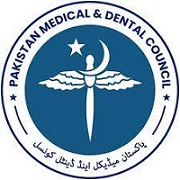MPOX: A RE-EMERGING INFECTION
Abstract
World Health Organization (WHO)'s declaration on July 23, 2022 regarding Mpox (previously Monkey pox) outbreak appeared as Public Health Emergency of International Concern (PHEIC). Although, WHO, in May 2023 declared an end to the global health emergency for Mpox, but still, it is still prevalent and public awareness should continue.1 This viral Zoonotic contagious disease was first discovered in 1958 when two outbreaks occurred in monkeys kept for research in Denmark, hence the name “monkeypox”. The first human case of monkeypox was recorded in 1970 in the Democratic Republic of Congo.2
Orthopoxvirus infections can cause a spectrum of febrile rash illnesses in humans, ranging from fairly benign, localized skin infections to severe systemic infections. Other diseases confused with vesicular rashes are smallpox, generalized vaccinia (vaccinia is the virus used in smallpox vaccination), disseminated herpes zoster, disseminated herpes simplex, drug eruptions, erythema multiforme, buffalopox, scabies, enteroviral infections, insect bites, impetigo, molluscum contagiosum, meningococcemia, and idiopathic thrombocytopenic purpura. The most striking feature that distinguishes Mpox from others is the presence of cervical lymphadenopathy, while in all other orthopoxviral infections this feature is absent.3,5
When suspicion is strong, nucleic acid amplification testing (NAAT), using real-time or conventional PCR Polymerase chain reaction (PCR) is the preferred laboratory test. The recommended specimen type for laboratory confirmation of Mpox is skin lesion material, including swabs of lesion surface and/or exudate, roofs
from more than one lesion, or lesion crusts. Many individuals infected with Mpox virus have a mild, self-limiting disease course in the absence of specific therapy. However, in the case of severe disease, treatment after infectious diseases consultation should be considered with vaccinia immunoglobulin intravenous (VIGIV), and antivirals brincidofovir or tecovirimat.2 The prognosis for Mpox depends on multiple factors such as previous vaccination status, initial health status, and concurrent illnesses or comorbidities.6 In addition to infection control measures, people need to get vaccinated, where available, for the best protection against mpox.2
National Institute of Health (NIH), Islamabad, Pakistan, under guidance of Ministry of National Health Services Regulations & Coordination (NHSR&C) has issued the National Guidelines for Mpox. NIH has also developed the bottom-up approach for the flow of information and reporting.7 The relationship between Mpox and smallpox has raised anxieties and misperceptions among the public, patients, and healthcare providers. Misinformation about Mpox has already begun to circulate. The public need to be engaged. Targeted risk-communication strategies should be developed. There is also need for regions to maintain public health preparedness and response. This warrants the strongest medical, scientific, and political global effort.






